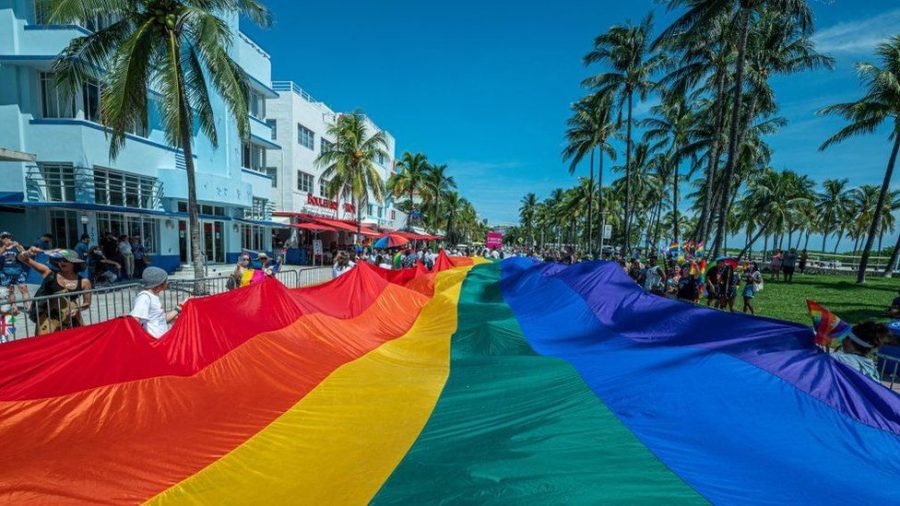‘Don’t Say Gay Bill’: What effects does it have on Florida and the student body?
Photo by: bbc.com
In this article, we take a look at one student’s opinion on the ‘Don’t Say Gay Bill,’ and how it effects her.
Recently, states such as Texas, Florida, and several others have faced great controversy for recent rises in anti-LGBTQ legislation targeted at schools. Namely, the ‘Parental Rights in Education Bill’, more commonly known as the ‘Don’t Say Gay’ Bill, which is making its way towards law in Florida.
According to the Florida House of Representatives website, the “Don’t Say Gay” Bill “requires district school boards to adopt procedures that comport with certain provisions of law for notifying student’s parent of specified information,” which is believed to mean that teachers will be legally required to out gay and transgender students to their parents, regardless of whether or not it would put the child in a dangerous situation. It also “prohibits classroom discussion about sexual orientation or gender identity in certain grade levels.”
What did the students have to say about this? Protests occurred in high schools throughout the state. “I knew there was a walkout protest going on at Cypress Lake High School, and I just saw pictures and videos of lots of high schoolers with rainbow flags and homemade signs and posters with ‘its okay to say gay’ and stuff written on them,” said Mia Landolfi, a junior at Florida Southwestern Collegiate High School. “[My friend] told me there was tons of chanting and some chanting back from other high schoolers yelling slurs and stuff at the protesting kids.”
Bills similar to the “Don’t Say Gay” Bill are popping up nationwide, with more anti-LGBTQ legislation being proposed this year than ever before. A large amount of this legislation directly targets LGBTQ youth. Tennessee’s proposed House Bill 800 prohibits material that “promotes, normalizes, supports, or addresses lesbian, gay, bi-sexual, or transgender lifestyles” from being shown in the classroom.
So, how do bills such as these affect actual LGBTQ youth? “[It affects] any LGBTQ+ youth, like me and my close friends, and pretty much most of the people I know would be personally affected by the bill because it just limits education on those subjects,” said Landolfi. According to the Gay, Lesbian, and Straight Education Network (GLSEN), lack of comprehensive sex education for LGBTQ students puts them at greater risk of mental, physical, and emotional harm related to relationships.
“Personally I feel that the bill is the state government’s way of trying to undermine the LGBTQ+ community and make it out to be a joke,” said Landolfi. “I think it’s important to teach individual identity to children and all the characteristics that make us who we are – being gender identity, race, religion, or orientation – it’s all human and shouldn’t be shunned by society just because people are different and have different views.”


